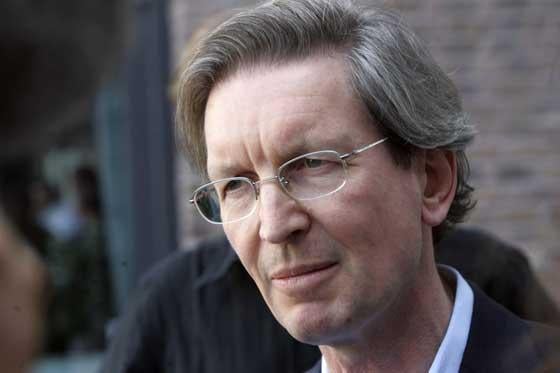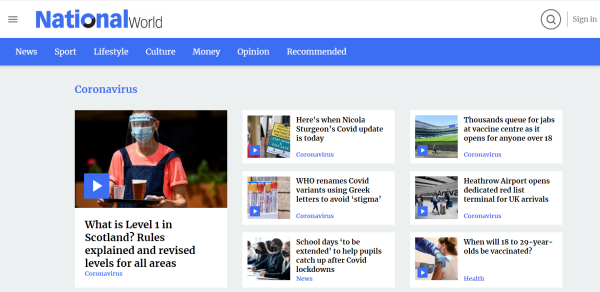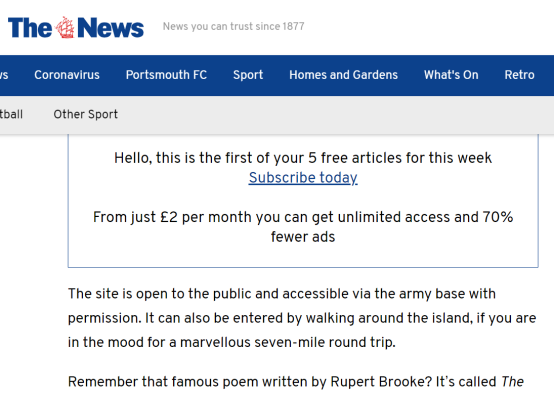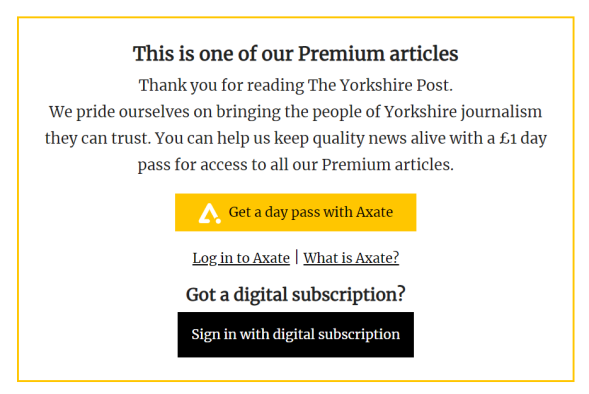
David Montgomery’s National World, which bought regional publisher JPI Media at the end of last year, is “beginning to see a different approach working” according to the ex-Local World boss.
Since the buyout at the end of 2020 Montgomery has redeployed 150 journalists to individual local titles from more centralised or consolidated positions. The same has been done for JPI’s commercial teams and both elements have helped the publisher re-engage with the local community, he said, alongside technological improvements to support them.
National World chief executive Montgomery (pictured) told Press Gazette this was easily the most significant progress made during the past six months.
“We have editors who have been involved in the community for years, decades in some cases, and in some respects the previous management didn’t take account of that expertise and drafted very experienced people into central functions rather than having them do what they do best which is serve their communities and provide leadership in those communities.
“We have tried to get those experienced journalists back into the jobs they love and excel at and it has made a huge difference to the service we’re providing.”
This initial reorganisation has also led to savings of £4m per year, as head office functions were streamlined and seven regional media units were created to cover “commercially homogeneous” markets. National World reported restructuring costs of £4m.
Montgomery’s group paid £10.2m for the UK’s third largest local newspaper publisher (with some 200 titles) in December 2020. Scotsman Publications alone, a small part of the portfolio, was bought for £160m when it became part of JPI (then called Johnston Press) in 2005.
In a trading update, National World said that revenue at JPI fell by 18% in the first quarter of the year – during which time the UK was under a strict lockdown – but grew by 18% each month in April and May compared to 2020.
National World had £18m in cash at the end of May with £1m outstanding loan note debt, £5m in deferred consideration on the acquisition of JPI, and £2.8m in lease liabilities.
The second phase of National World’s takeover has now begun, with a target of doubling online audience by the end of 2022. Montgomery pledged this would be organic growth, although he is also planning to make more acquisitions and launches.
The JPI portfolio currently claims around 110m page views per month and a new national news website which soft-launched in March, also called National World, attracted 3.5m page views in its first month which was said to be better than expected.
The Independent equivalent
Montgomery told Press Gazette the National World website is aiming to be the equivalent of The Independent – a digital-only national newspaper – but with a less London-centric focus than the rest of the market which he said “generally underrepresents the regions”.

It has a dedicated team of journalists redeployed from elsewhere within JPI and Montgomery described them as “very high-quality people, they represent a point of view that is more modern, more youthful and less biased towards the establishment”.
He added that the website, which is set to ramp up its profile over the next few months, will have a political agenda on issues like increased devolution and will “behave like a national newspaper: very strong campaigning characteristics, challenging to the establishment.
“I think that we will have some progressive policies and have a focus on content like no other national newspaper,” he said.
National World subscriptions strategy
The publisher is also counting on digital subscriptions, with estimated revenue growth of 200% to £0.6m in the 21 weeks to 29 May according to its trading update combining Q1 results with estimates for April and May.
Online subscription models were rolled out across JPI’s daily newspaper websites in 2020 and in the past month a further 21 weekly titles have begun taking payments. Some, such as the Portsmouth News (pictured below), offer five free articles per week before readers must pay. The Yorkshire Post went a different route and has pay-per-day packages through micro-payment platform Axate.
Montgomery told Press Gazette different models were considered for different titles because: “It’s not a question of one size fits all – it’s about adapting the model to suit the community you serve.”
He added: “I don’t think many people who live within the M25 understand how different each community is.”
‘Neat trick’ of online reach vs payments
Digital advertising revenues were up 1% across the period but by 45% across April and May indicating a boost as businesses began to reopen after England’s third lockdown.
Montgomery said the targeted audience growth would come through free-to-read content that is “already in the market in some form” but has had a local slant put on it. Premium unique content will be used to drive subscriptions.
“Balancing the ambition to have paid-for content online against growing audience – that’s a neat trick,” he said.
The company revealed it has begun receiving about £100,000 per month from Facebook and Google in content deals since January, contributing to an increase in other (non subscription or advertising) digital revenues of 26% year-on-year. The tech giants have been striking deals with individual publishers in an apparent attempt to soften impending regulation.
National World’s David Montgomery: ‘We need to stand up for ourselves’
Referencing the famous “Please sir, I want some more” quote, Montgomery told Press Gazette: “The sector generally will play the Oliver Twist card when dealing with the platforms – it will never be enough.
“And seriously I would agree that it is not enough. We have several hundred journalists producing what is very often unique content that can’t be found anywhere else.
“The way they get that content is through deep knowledge of their community that nobody else has so I think it’s entirely fair for the industry to expect that the social media platforms and content should pay a fair price for it.”
[Read more: Daily Mail publisher rejected Google deal because ‘money not adequate and terms too restrictive’]
He added: “I think we need to stand up for ourselves by saying that we’re reliable, we are truthful, and when we do make mistakes we correct them quickly. We do represent our readership. I think we certainly need to see greater respect and indeed a greater contribution from social media platforms that pay for our content.”
Print to stabilise
In print, the aim is to stabilise circulation. Montgomery said this was already happening on JPI’s dailies where some growth is being seen: the Belfast News Letter is up 11% year-on-year according to the latest internal figures, he said, while the Yorkshire Post’s Saturday edition is selling more copies this year than last year.
Meanwhile the weeklies are within 5% of parity compared to last year, he added. Some titles are outselling last year including the Northampton Chronicle.
Print-driven revenue still makes up 85% of National World’s total. In the year to date it brought in £28.9m compared to £4.7m in digital-driven revenue and £0.6m from other streams.
“Obviously we can’t change the dynamics of the media sector but these quality brands with quality leadership are now coming into their own and I believe that we can continue to make headway in supporting circulations,” Montgomery said.
Reach, Newsquest and Archant are all investing in journalist jobs at the moment. JPI is also investing in a new team of SEO journalists.
Asked what National World is doing differently, Montgomery said: “We are not attempting to replicate what other organisations do – if anything, we are trying to put new ingredients into our operating model that will be sustainable and that does mean some adjustment from the traditional operating model.
“Our model is to make things more local, more relevant and in particular we are not relying on direction from the centre, we are relying on individual editors to provide the connection and the leadership in their communities and the responsibility has been very much devolved to those individual editors and I think that freedom to represent the community is absolutely critical to developing a local publishing business.”
Email pged@pressgazette.co.uk to point out mistakes, provide story tips or send in a letter for publication on our "Letters Page" blog


